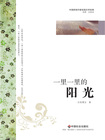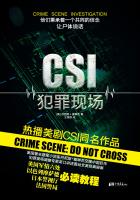Léon felt it betweenhis fingers, and the very essence of all his being seemed to pass down intothat moist palm. Then he opened his hand; their eyes met again, and hedisappeared.
When he reached the market-place, he stoppedand hid behind a pillar to look for the last time at this white house with thefour green blinds. He thought he saw a shadow behind the window in the room;but the curtain, sliding along the pole as though no one were touching it,slowly opened its long oblique folds that spread out with a single movement,and thus hung straight and motionless as a plaster wall. Léon set off running.
From afar he saw his employer's gig in the road, and by it a man in a coarse apron holding the horse.Homais and Monsieur Guillaumin were talking. They were waiting for him.
“Embrace me,” saidthe druggist with tears in his eyes. “Here is yourcoat, my good friend. Mind the cold; take care of yourself; look afteryourself.”
“Come, Léon, jump in,” said the notary.
Homais bend over the splash-board, and in avoice broken by sobs uttered these three sad words-
“A pleasant joumey!”
“Good-night,” saidMonsieur Guillaumin. “Give him his head.”
They set out, and Homais went back.
Madame Bovary had opened her windowoverlooking the garden and watched the clouds. They gathered around the sunseton the side of Rouen and then swiftly rolled back their black columns, behindwhich the great rays of the sun looked out like the golden arrows of asuspended trophy, while the rest of the empty heavens was white as porcelain.But a gust of wind bowed the poplars, and suddenly the rain fell; it patteredagainst the green leaves. Then the sun reappeared, the hens clucked, sparrowsshook their wings in the damp thickets, and the pools of water on the gravel asthey flowed away carried off the pink flowers of an acacia.
“Ah! how far off he must be already!” she thought.
Monsieur Homais, as usual, came at half-pastsix during dinner.
“Well,” said he, “so we've sent off our young friend!”
“So it seems,”replied the doctor. Then turning on his chair; “Anynews at home?”
“Nothing much. Only my wife was a littlemoved this afternoon. You know women-a nothing upsets them, especially my wife.And we should be wrong to object to that, since their nervous organization ismuch more malleable than ours.”
“Poor Léon!” said Charles. “How will he live at Paris?Will he get used to it?”
Madame Bovary sighed.
“Get along!” said thechemist, smacking his lips. “The outings atrestaurants, the masked balls, the champagne-all that'llbe jolly enough, I assure you.”
“I don't think he'll go wrong,” objected Bovary.
“Nor do I,” saidMonsieur Homais quickly; “although he'll have to do like the rest for fear of passing for a Jesuit. Andyou don't know what a life those dogs lead in the Latinquarter with actresses. Besides, students are thought a great deal of in Paris.Provided they have a few accomplishments, they are received in the bestsociety; there are even ladies of the Faubourg Saint-Germain who fall in lovewith them, which subsequently fumishes them opportunities for ****** very goodmatches.”
“But,” said thedoctor, “I fear for him that down there-”
“You are right,”interrupted the chemist; “that is the reverse of themedal. And one is constantly obliged to keep one's handin one's pocket there. Thus, we will suppose you are ina public garden. An individual presents himself, well dressed, even wearing anorder, and whom one would take for a diplomatist. He approaches you, heinsinuates himself; offers you a pinch of snuff, or picks up your hat. Then youbecome more intimate; he takes you to a cafe, invites you to his country-house,introduces you, between two drinks, to all sorts of people; and three-fourthsof the time it's only to plunder your watch or lead youinto some pernicious step.
“That is true,” saidCharles; “but I was thinking especially of illnesses-oftyphoid fever, for example, that attacks students from the provinces.”
Emma shuddered.
“Because of the change of regimen,” continued the chemist, “and of theperturbation that results therefrom in the whole system. And then the water atParis, don't you know! The dishes at restaurants, allthe spiced food, end by heating the blood, and are not worth, whatever peoplemay say of them, a good soup. For my own part, I have always preferred plainliving; it is more healthy. So when I was studying pharmacy at Rouen, I boardedin a boarding house; I dined with the professors.”
And thus he went on, expounding his opinionsgenerally and his personal likings, until Justin came to fetch him for a mulledegg that was wanted.
“Not a moment'speace!” he cried; “always atit! I can't go out for a minute! Like a plough-horse, Ihave always to be moiling and toiling. What drudgery!”Then, when he was at the door, “By the way, do you knowthe news?”
“What news?”
“That it is very likely,” Homais went on, raising his eyebrows and assuming one of his mostserious expression, “that the agricultural meeting ofthe Seine-Inferieure will be held this year at Yonville-l'Abbaye. The rumour, at all events, is going the round. This morningthe paper alluded to it. It would be of the utmost importance for our district.But we'll talk it over later on. I can see, thank you;Justin has the lantern.”
Chapter 7
The next day was a dreary one for Emma.Everything seemed to her enveloped in a black atmosphere floating confusedlyover the exterior of things, and sorrow was engulfed within her soul with softshrieks such as the winter wind makes in ruined castles. It was that reveriewhich we give to things that will not return, the lassitude that seizes youafter everything was done; that pain, in fine, that the interruption of everywonted movement, the sudden cessation of any prolonged vibration, brings on.
As on the return from Vaubyessard, when thequadrilles were running in her head, she was full of a gloomy melancholy, of anumb despair. Léon reappeared, taller, handsomer, morecharming, more vague. Though separated from her, he had not left her; he wasthere, and the walls of the house seemed to hold his shadow. She could notdetach her eyes from the carpet where he had walked, from those empty chairswhere he had sat. The fiver still flowed on, and slowly drove its ripples alongthe slippery banks. They had often walked there to the murmur of the waves overthe moss-covered pebbles. How bright the sun had been! What happy afternoonsthey had seen alone in the shade at the end of the garden! He read aloud,bareheaded, sitting on a footstool of dry sticks; the fresh wind of the meadowset trembling the leaves of the book and the nasturtiums of the arbour. Ah! hewas gone, the only charm of her life, the only possible hope of joy. Why hadshe not seized this happiness when it came to her? Why not have kept hold of itwith both hands, with both knees, when it was about to flee from her? And shecursed herself for not having loved Léon. She thirstedfor his lips. The wish took possession of her to run after and rejoin him,throw herself into his arms and say to him, “It is I; Iam yours.” But Emma recoiled beforehand at thedifficulties of the enterprise, and her desires, increased by regret, becameonly the more acute.
Henceforth the memory of Léon was the centre of her boredom; it burnt there more brightly thanthe fire travellers have left on the snow of a Russian steppe. She sprangtowards him, she pressed against him, she stirred carefully the dying embers,sought all around her anything that could revive it; and the most distantreminiscences, like the most immediate occasions, what she experienced as wellas what she imagined, her voluptuous desires that were unsatisfied, herprojects of happiness that crackled in the wind like dead boughs, her sterilevirtue, her lost hopes, the domestic tête-à-tête-she gathered it all up, tookeverything, and made it all serve as fuel for her melancholy.
The flames, however, subsided, either becausethe supply had exhausted itself, or because it had been piled up too much.Love, little by little, was quelled by absence; regret stifled beneath habit;and this incendiary light that had empurpled her pale sky was overspread andfaded by degrees. In the supineness of her conscience she even took herrepugnance towards her husband for aspirations towards her lover, the burningof hate for the warmth of tenderness; but as the tempest still raged, and aspassion burnt itself down to the very cinders, and no help came, no sun rose,there was night on all sides, and she was lost in the terrible cold thatpierced her.
Then the evil days of Tostes began again. Shethought herself now far more unhappy; for she had the experience of grief, withthe certainty that it would not end.
A woman who had laid on herself suchsacrifices could well allow herself certain whims. She bought a Gothicprie-Dieu, and in a month spent fourteen francs on lemons for polishing hernails; she wrote to Rouen for a blue cashmere gown; she chose one of Lheureux's finest scarves, and wore it knotted around her waist over herdressing-gown; and, with closed blinds and a book in her hand, she laystretched out on a couch in this garb.
She often changed her coiffure; she did herhair à la Chinoise, in flowing curls, in plaited coils;she parted in on one side and rolled it trader like a man's.
She wanted to learn Italian; she boughtdictionaries, a grammar, and a supply of white paper. She tried seriousreading, history, and philosophy. Sometimes in the night Charles woke up with astart, thinking he was being called to a patient. “I'm coming,” he stammered; and it was thenoise of a match Emma had struck to relight the lamp. But her reading faredlike her piece of embroidery, all of which, only just begun, filled hercupboard; she took it up, left it, passed on to other books.
She had attacks in which she could easilyhave been driven to commit any folly. She maintained one day, in opposition toher husband, that she could drink off a large glass of brandy, and, as Charleswas stupid enough to dare her to, she swallowed the brandy to the last drop.
In spite of her vapourish airs (as thehousewives of Yonville called them), Emma, all the same, never seemed gay, andusually she had at the comers of her mouth that immobile contraction thatpuckers the faces of old maids, and those of men whose ambition has failed. Shewas pale all over, white as a sheet; the skin of her nose was drawn at thenostrils, her eyes looked at you vaguely. After discovering three grey hairs onher temples, she talked much of her old age.
She often fainted. One day she even spatblood, and, as Charles fussed around her showing his anxiety-
“Bah!” she answered, “what does it matter?”
Charles fled to his study and wept there,both his elbows on the table, sitting in an arm-chair at his bureau under thephrenological head.
Then he wrote to his mother begging her tocome, and they had many long consultations together on the subject of Emma.
What should they decide? What was to be donesince she rejected all medical treatment?
“Do you know what your wife wants?” replied Madame Bovary senior. “She wants tobe forced to occupy herself with some manual work. If she were obliged, like somany others, to earn her living, she wouldn't havethese vapours, that come to her from a lot of ideas she stuffs into her head,and from the idleness in which she lives.”
“Yet she is always busy,” said Charles.
“Ah! always busy at what? Reading novels, badbooks, works against religion, and in which they mock at priests in speechestaken from Voltaire. But all that leads you far astray, my poor child. Anyonewho has no religion always ends by turning out badly.”
So it was decided to stop Emma readingnovels. The enterprise did not seem easy. The good lady undertook it. She was,when she passed through Rouen, to go herself to the lending-library andrepresent that Emma had discontinued her subion. Would they not have aright to apply to the police if the librarian persisted all the same in hispoisonous trade?
The farewells of mother and daughter-in-lawwere cold. During the three weeks that they had been together they had notexchanged half-a-dozen words apart from the inquiries and phrases when they metat table and in the evening before going to bed.
Madame Bovary left on a Wednesday, themarket-day at Yonville.
The Place since morning had been blocked by arow of carts, which, on end and their shafts in the air, spread all along theline of houses from the church to the inn. On the other side there were canvasbooths, where cotton checks, blankets, and woollen stockings were sold,together with harness for horses, and packets of blue ribbon, whose endsfluttered in the wind. The coarse hardware was spread out on the ground betweenpyramids of eggs and hampers of cheeses, from which sticky straw stuck out.Near the corn-machines clucking hens passed their necks through the bars offlat cages. The people, crowding in the same place and unwilling to movethence, sometimes threatened to smash the shop front of the chemist. OnWednesdays his shop was never empty, and the people pushed in less to buy drugsthan for consultations. So great was Homais' reputationin the neighbouring villages. His robust aplomb had fascinated the rustics.They considered him a greater doctor than all the doctors.
Emma was leaning out at the window; she wasoften there. The window in the provinces replaces the theatre and thepromenade, she was amusing herself with watching the crowd of boors when shesaw a gentleman in a green velvet coat. He had on yellow gloves, although hewore heavy gaiters; he was coming towards the doctor'shouse, followed by a peasant walking with a bent head and quite a thoughtfulair.
“Can I see the doctor?” he asked Justin, who was talking on the doorsteps with Fé1icité, and, taking him for a servant of thehouse-”Tell him that Monsieur Rodolphe Boulanger of LaHuchette is here.”
It was not from territorial vanity that thenew arrival added “of La Huchette” to his name, but to make himself the better known. La Huchette, infact, was an estate near Yonville, where he had just bought the chgteau and twofarms that he cultivated himself, without, however, troubling very much aboutthem. He lived as a bachelor, and was supposed to have “at least fifteen thousand francs a year.”
Charles came into the room. MonsieurBoulanger inttroduced his man, who wanted to be bled because he felt “a tingling all over.”
“That'll purge me,” he urged as an objection to all reasoning.
So Bovary ordered a bandage and a basin, andasked Justin to hold it. Then addressing the peasant, who was already pale-
“Don't be afraid, mylad.”
“No, no, sir,” saidthe other; “get on.”
And with an air of bravado he held out hisgreat arm. At the prick of the lancet the blood spurted out, splashing againstthe looking-glass.
“Hold the basin nearer,” exclaimed Charles.
“Lor!” said thepeasant, “one would swear it was a little fountainflowing. How red my blood is! That's a good sign, isn't it?”
“Sometimes,” answeredthe doctor, “one feels nothing at first, and thensyncope sets in, and more especially with people of strong constitution likethis man.”
At these words the rustic let go thelancet-case he was twisting between his fingers. A shudder of his shouldersmade the chair-back creak. His hat fell off.
“I thought as much,”said Bovary, pressing his finger on the vein.
The basin was beginning to tremble in Justin's hands; his knees shook, he turned pale.
“Emma! Emma!” calledCharles.
With one bound she came down the staircase.
“Some vinegar,” hecried. “O dear! two at once!”
And in his emotion he could hardly put on thecompress.
“It is nothing,” saidMonsieur Boulanger quietly, taking Justin in his arms. He seated him on thetable with his back resting against the wall.
Madame Bovary began taking off his cravat.The strings of his shirt had got into a knot, and she was for some minutesmoving her light fingers about the young fellow's neck.Then she poured some vinegar on her cambric handkerchief; she moistened histemples with little dabs, and then blew upon them softly. The ploughmanrevived, but Justin's syncope still lasted, and hiseyeballs disappeared in the pale sclerotics like blue flowers in milk.
“We must hide this from him,” said Charles.
Madame Bovary took the basin to put it underthe table. With the movement she made in bending down, her dress (it was asummer dress with four flounces, yellow, long in the waist and wide in theskirt) spread out around her on the flags of the room; and as Emma stooping,staggered a little as she stretched out her arms. The stuff here and there gavewith the inflections of her bust. Then she went to fetch a bottle of water, andshe was melting some pieces of sugar when the chemist arrived. The servant hadbeen to fetch him in the tumult. Seeing his pupil'seyes staring he drew a long breath; then going around him he looked at him fromhead to foot.
“Fool!” he said, “really a little fool! A fool in four letters! A phlebotomy's a big affair, isn't it! And a fellow whoisn't afraid of anything; a kind of squirrel, just ashe is who climbs to vertiginous heights to shake down nuts. Oh, yes! you justtalk to me, boast about yourself. Here's a fine fitnessfor practising pharmacy later on; for under serious circumstances you may becalled before the tribunals in order to enlighten the minds of the magistrates,and you would have to keep your head then, to reason, show yourself a man, orelse pass for an imbecile.”
Justin did not answer. The chemist went on-
“Who asked you to come? You are alwayspestering the doctor and madame. On Wednesday, moreover, your presence isindispensable to me. There are now twenty people in the shop. I left everythingbecause of the interest I take in you. Come, get along! Sharp! Wait for me, andkeep an eye on the jars.”
When Justin, who was rearranging his dress,had gone, they talked for a little while about fainting-fits. Madame Bovary hadnever fainted.
“That is extraordinary for a lady,” said Monsieur Boulanger; “but some peopleare very susceptible. Thus in a duel, I have seen a second lose consciousnessat the mere sound of the loading of pistols.”
“For my part,” saidthe chemist, “the sight of other people's blood doesn't affect me at all, but themere thought of my own flowing would make me faint if I reflected upon it toomuch.”
Monsieur Boulanger, however, dismissed hisservant, advising him to calm himself, since his fancy was over.
“It procuréd me theadvantage of ****** your acquaintance,” he added, andhe looked at Emma as he said this. Then he put three francs on the corner ofthe table, bowed negligently, and went out.
He was soon on the other side of the river(this was his way back to La Huchette), and Emma saw him in the meadow, walkingunder the poplars, slackening his pace now and then as one who reflects.
“She is very pretty,”he said to himself; “she is very pretty, this doctor's wife. Fine teeth, black eyes, a dainty foot, a figure like aParisienne's. Where the devil does she come from?Wherever did that fat fellow pick her up?”
Monsieur Rodolphe Boulanger was thirty-four;he was of brutal temperament and intelligent perspicacity, having, moreover,had much to do with women, and knowing them well. This one had seemed pretty tohim; so he was thinking about her and her husband.
“I think he is very stupid. She is tired ofhim, no doubt. He has dirty nails, and hasn't shavedfor three days. While he is trotting after his patients, she sits therebotching socks. And she gets bored! She would like to live in town and dancepolkas every evening. Poor little woman! She is gaping after love like a carpafter water on a kitchen-table. With three words of gallantry she'd adore one, I'm sure of it. She'd be tender, charming. Yes; but how to get rid of her afterwards?”
Then the difficulties of love-****** seen inthe distance made him by contrast think of his mistress. She was an actress atRouen, whom he kept; and when he had pondered over this image, with which, evenin remembrance, he was satiated-
“Ah! Madame Bovary,”he thought, “is much prettier, especially fresher.Virginie is decidedly beginning to grow fat. She is so finiky about herpleasures; and, besides, she has a mania for prawns.”
The fields were empty, and around himRodolphe only heard the regular beating of the grass striking against hisboots, with a cry of the grasshopper hidden at a distance among the oats. Heagain saw Emma in her room, dressed as he had seen her, and he undressed her.
“Oh, I will have her,” he cried, striking a blow with his stick at a clod in front of him.And he at once began to consider the political part of the enterprise. He askedhimself-
“Where shall we meet? By what means? We shallalways be having the brat on our hands, and the servant, the neighbours, andhusband, all sorts of worries. Pshaw! one would lose too much time over it.”
Then he resumed, “Shereally has eyes that pierce one's heart like a gimlet.And that pale complexion! I adore pale women!”
When he reached the top of the Arguiel hillshe had made up his mind. “It'sonly finding the opportunities. Well, I will call in now and then. I'll send them venison, poultry; I'll havemyself bled, if need be. We shall become friends; I'llinvite them to my place. By Jove!” added he, “there's the agricultural show coming on. She'll be there. I shall see her. We'll beginboldly, for that's the surest way.”
Chapter 8
At last it came, the famous agriculturalshow. On the morning of the solemnity all the inhabitants at their doors werechatting over the preparations. The pediment of the town hall had been hungwith garlands of ivy; a tent had been erected in a meadow for the banquet; andin the middle of the Place, in front of the church, a kind of bombarde was toannounce the arrival of the prefect and the names of the successful farmers whohad obtained prizes. The National Guard of Buchy (there was none at Yonville)had come to join the corps of firemen, of whom Binet was captain. On that dayhe wore a collar even higher than usual; and, tightly buttoned in his tunic,his figure was so stiff and motionless that the whole vital portion of hisperson seemed to have descended into his legs, which rose in a cadence of setsteps with a single movement. As there was some rivalry between thetax-collector and the colonel, both, to show off their talents, drilled theirmen separately. One saw the red epaulettes and the black breastplates pass andre-pass alternately; there was no end to it, and it constantly began again.There had never been such a display of pomp. Several citizens had scoured theirhouses the evening before; tri-coloured flags hung from half-open windows; allthe public-houses were full; and in the lovely weather the starched caps, thegolden crosses, and the coloured neckerchiefs seemed whiter than snow, shone inthe sun, and relieved with the motley colours the sombre monotony of thefrock-coats and blue smocks. The neighbouring farmers'wives, when they got off their horses, pulled out the long pins that fastenedaround them their dresses, turned up for fear of mud; and the husbands, fortheir part, in order to save their hats, kept their handkerchiefs around them,holding one comer between their teeth.













